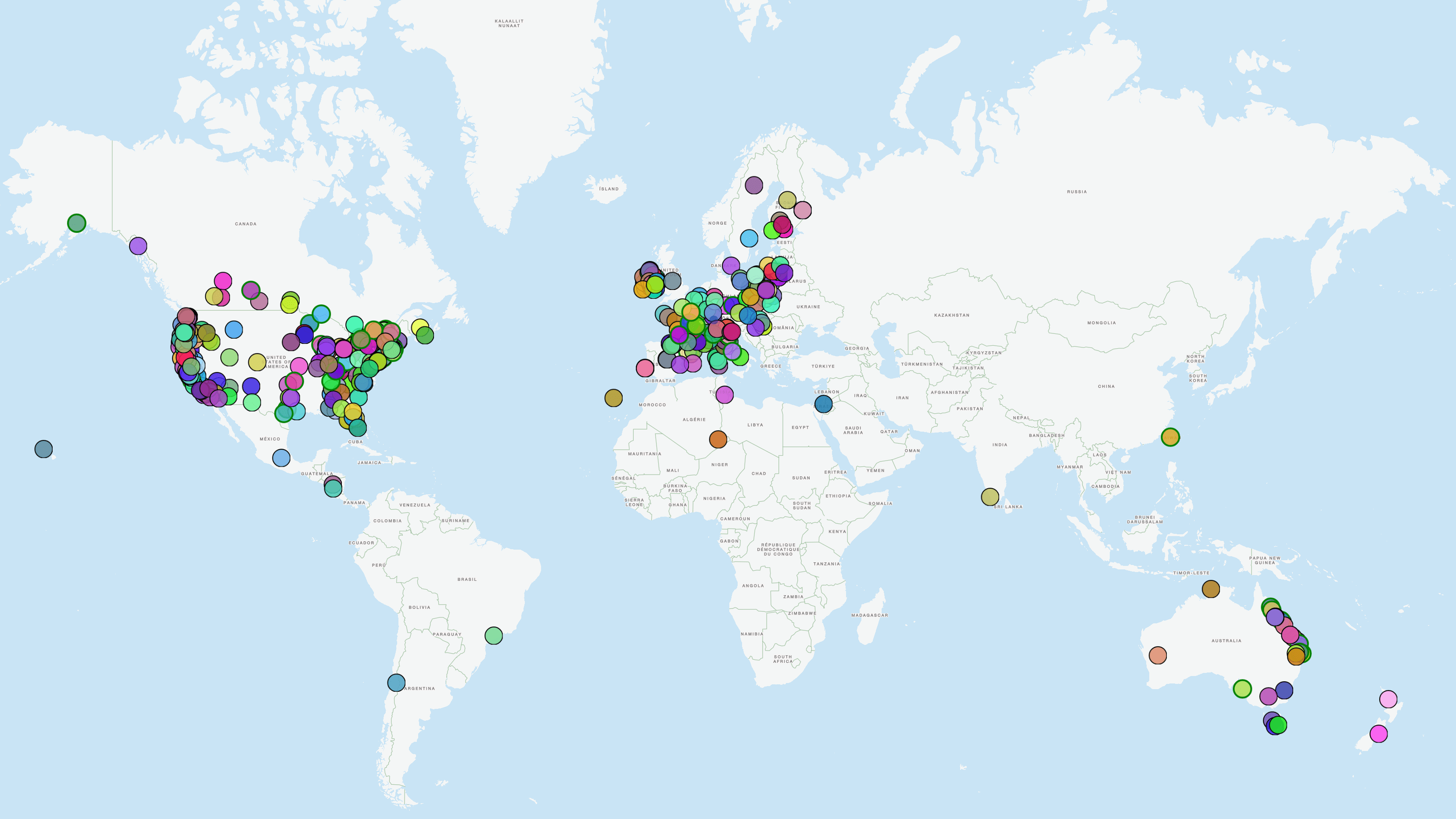performance.now()
geOps developers are encouraged to regularly expand their knowledge and skill set. Among other things, this can be achieved by attending conferences. Not only do conferences often shed light into the forefront of modern technology, but they also offer opportunities to meet the corresponding community and connect with like-minded professionals.
In November 2024 two geOps frontend developers headed to Amsterdam to attend performance.now(), a two-day single-track conference with fourteen world-class sessions covering today’s most important web performance insights. Considering the importance of performance in loading geOps maps and applications, this was an excellent opportunity for a deep dive into the domain.

The conference took place at the stunning Zuiderkerk, a 17th century protestant church turned into a conference venue. Attendees were well provided for, with food and drinks included throughout the whole event. Various sponsors were present promoting their products, Mozilla, Google, Akamai and Sentry among others.
The talks were extremely interesting and professional. The topics varied among several performance-related domains, and as one would expect, terms like “load times”, “caching” and “prefetching” were mentioned in most talks. Particularly interesting were presentations focusing on the performance angle of established frontend topics.
In his talk Accessibility is Performant, Eric Baily showed examples of how a poorly managed accessibility tree can cause screen readers to crash, causing sites to become inaccessible for users with disabilities. In a further presentation about Font Performance Strategies, Mandy Michael demonstrated a variety of ways how fonts can be compressed and loaded more efficiently to reduce wait times.
In a different take on the topic of performance, performance architect Paul Calvano showed 17 examples of performance optimisation that backfire, causing performance loss instead of gains. This included, for example, excessive preconnects, preloads and prefetches or not compressing preloaded ressources. Data from the current Web Almanac 2024 showed that these problems are not uncommon.
Most talks also emphasised on the various ways of measuring and auditing performance. The Google Chrome DevTools team presented their newest features in the DevTools performance tab. Tools for gaining insights on third party scripts, like RequestMapGenerator can help monitor how many external scripts are loaded and how they impact performance. Finally Google Lighthouse was mentioned countless times, a tool for auditing performance, accessibility, progressive web apps, SEO, and more.
Finally, Annie Sullivan, who heads the Core Web Vitals team at Google, shared her many years of experience in an inspiring presentation and showed which methods can be used to overcome the complex challenges in this area.

All in all, the conference was a great success and attendees acquired new input and ideas for their own projects. As geOps developers, we’re excited about the opportunity to gain deeper insights into our applications’ performance and enhance them even further.





